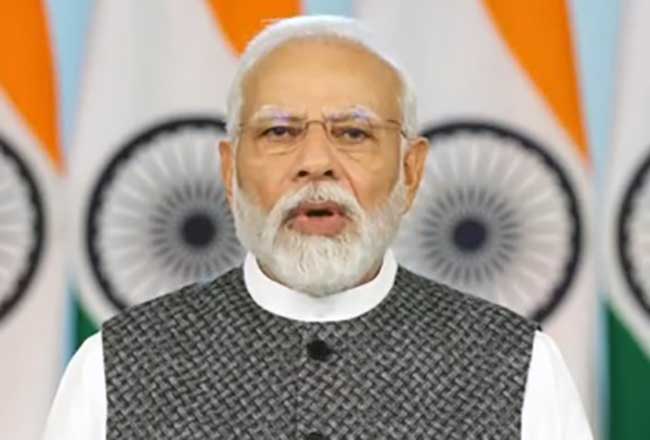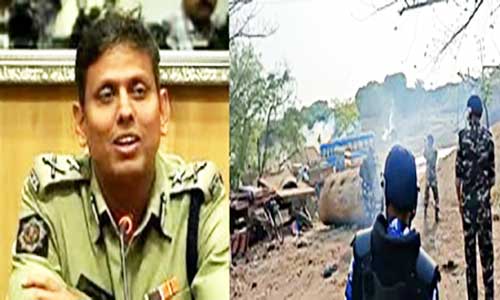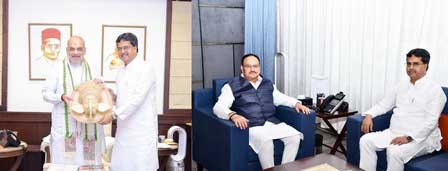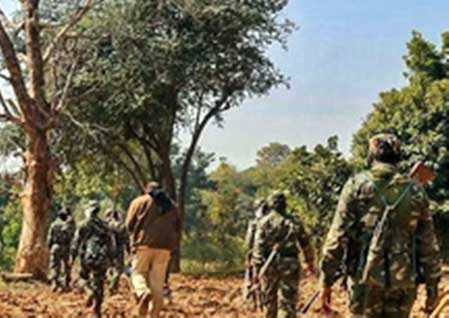Prime Minister Narendra Modi on Saturday said that with the implementation of New Education Policy (NEP), the Indian students will be able to study in their own local language which will benefit them in all-round development.
The Prime Minister was speaking at the inaugural event of the 2-day All India Education Convention at Pragati Maidan.
The convention is also known as Akhil Bhartiya Shiksha Samagam. It is a two-day programme which is being held on July 29 and 30. The convention will provide a platform for academics, sector experts, and higher education and skilling institutions to share their insights in implementing the NEP 2020 policy.
PM Modi said that all developed countries use their local language but in India a person’s skill is not accepted if he is unable to speak in English language.
“Developed countries have progressed with the help of their local languages. We have projected our local language as backward which is unfortunate. People who are unable to speak in the English language are not accepted though they are talented and innovative. In the Amritkal of Independence, we have shed this practice,” the PM said.
He said that the NEP endorses equity and that he also spoke in local language at the UN.
“This will also close the shops of people who are doing language politics and are running shops of hatred,” the PM said.
Addressing the students and teachers, the PM said that only education can change the future of the country.
He said that education policy is playing a crucial role in achieving the goals of our country.
The PM said that consultation is a must for knowledge and discussion is necessary for education.
He said that he is happy that with consultation and discussion, they were taking a leap into the future.
“Earlier, such a program was held at the newly constructed convention hall of Kashi. This time, it is happening in the newly constructed Bharat Mandapm of New Delhi. This very first program is about education here.
“I am overwhelmed by the feeling that the first program at this newly constructed auditorium is about education. From Kashi’s Rudrakash hall to this most modern Bharat Mandapm, the journey of Akhil Bhartiya Siksha Sangam has a message. The message is of togetherness and merging of ancient and modern eras,” the Prime Minister said.
He said on one hand the education system was securing ancient culture and modern science, and on the other hand, they were moving fast in the field of high-tech technology and modern science.
PM said that the NEP was completing three years with today’s program.
“The intellectuals, academicians, and teachers took it as a mission. I also visited the exhibition in the adjoining pavilion. In this exhibition, our skills and the power and achievements and new innovations in the education sector were displayed. I also interacted with the children over there. We can see children are learning through different games and education, and schooling is also being changed in a positive manner,” PM said.
He also requested people to visit the newly constructed Bharat Mandapm.
He said three years back when the NEP was introduced, at that time it had a goal to achieve.
Speaking about primary education, the PM said that to introduce a new curriculum and to bring books in the local language and to make the research eco-system stronger, the academicians played crucial roles.
“Teachers and students know that instead of 10+2, we are now focusing on 5+3+3+4 education system. The education will now start at the age of three. Recently, the Cabinet gave its permission to introduce the National Vision Foundation bill in Parliament. With the help of the National Education Policy, we are also in the process of introducing a national curriculum framework. And I was informed that the framework was even completed for foundation age (3 to 8 years) kids. We are also working for the rest,” PM said.
The PM said that the CBSE will have one curriculum in the entire country and that NCERT is in process of launching new books.
He said that from class IIIrd to XII, books of around 130 subjects will be launched soon. These books will be in 22 different languages.






Drugs valued at Rs 71 crore seized in Assam; 2 held
Heroin and highly addictive methamphetamine tablets, valued at Rs 71 crore, were seized during two separate operations in Assam's Kamrup district on Friday, officials said.
One held with cannabis worth Rs 15 Lakh in Sonamura
In a major breakthrough in Tripura Police’s ongoing crackdown on narcotics, a joint team led by Sonamura Police Station seized 325 kilograms of dried cannabis (ganja) from a house in Ananda Nagar village under Sepahijala district’s Sonamura Sub-division
BJP MP launches attack on Sonia Gandhi, Rahul Gandhi over National Herald case
The BJP Yuva Morcha staged a protest against Congress leaders Sonia Gandhi and Rahul Gandhi, accused in the National Herald case, in Agartala on Friday.
Two Bangladeshi women held at Agartala Railway Station
In a coordinated operation carried out on Thursday late night, two Bangladeshi women were arrested from Agartala Railway Station for illegally entering Indian Territory with the alleged intention of travelling to Mumbai via Kolkata.
2 minors among 315 arrested so far in connection with Murshidabad violence: Bengal Police report
A total of 315 arrests have been made so far in connection with the communal violence in Murshidabad district of West Bengal over protests against the Waqf (Amendment) Act last week, including two minors, confirmed the West Bengal Police in its report,
No plan to levy GST on UPI transactions over Rs 2,000: Govt
The Finance Ministry on Friday made it clear that the government is not considering any proposal to levy Goods and Services Tax (GST) on UPI transactions over Rs 2,000.
Tripura CM discusses state govt's key plans with HM Shah, JP Nadda
Tripura Chief Minister Manik Saha on Friday in separate meetings in New Delhi discussed important development plans of the state government with Union Home Minister Amit Shah and Health and Family Welfare Minister J.P. Nadda.
HM Amit Shah's 2026 deadline in sight as Sukma panchayat declared Maoist-free
This signalled a breakthrough in the government’s counter-insurgency and rehabilitation strategy. The mass surrender not only reflects a weakening of Maoist influence but also reaffirms HM Shah’s ambitious deadline as increasingly within reach.